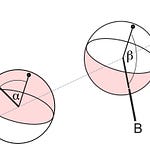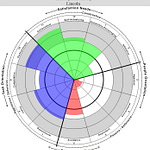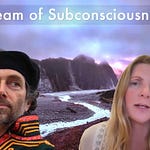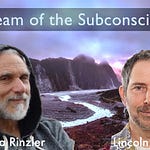“By three methods we may learn wisdom: First, by reflection, which is noblest; Second, by imitation, which is easiest; and third by experience, which is the bitterest.” — Confucius
Science, Business, and Relationships
Confucius may have been right in 450 BC, but he would be wrong today because today’s situations are changing too fast. Reflection has been replaced by media influencers, and propaganda has us imitating celebrities, so wisdom must come from personal experience.
Science is an attempt to create insight by combining these elements. Imitation is not presented as part of science but it is implicit in it. If you’ve experienced scientific training, then you’re aware of how strongly you’re encouraged to follow those in your field. In science, the search is not for wisdom but for truth, or what passes for truth.
Business uses competition and puts an emphasis on novelty. Entrepreneurs practice the art of success, a pursuit in which money replaces wisdom. Business shares some elements with science with a greater emphasis on the management of people and profit.
Personal relationships are the most common form of learning. They certainly combine thought, imitation, and experience. Relationships show that experience is the most important path to wisdom but that’s not really what we’re looking for. Most of our relationships replace wisdom with happiness. Happiness is the goal of relationships.
Wisdom, truth, money, and happiness are today’s competing paths to virtue. Most of us aspire to all of these, though wisdom has lost favor. We presume there will be one path that will advance us in all regards. We don’t recognize that each of these goals creates a different path. There is little reason to believe they all converge anywhere down the road.
You may not see the goals toward which your paths lead, but you can probably feel the differences. Science does not make us wise, business does not make us happy, and relationships, sadly, often reward us only with experience.
Confucius fails to distinguish that these paths have different goals. He promulgates the fallacy that different means lead to the same ends, which they do not.
For brevity, let’s say that thought leads to truth because truth is a concept, imitation leads to wealth because levels of wealth only exist by imitating the wealthy, and experience can lead to happiness because happiness is something that can only be experienced.
Our unsatisfied needs lead us to pursue these goals. We only make the effort to learn when we run out of answers. Our growth happens at the edges of what we currently understand. And it’s at these edges where we try to distinguish between what keeps us safe and what helps us change.
Celebrating The Winners
Learning by any path involves either following the tracks of the winners or the tracks of the survivors. Even those who follow the path marked, “Abandon all hope, ye who enter here,” presume they will survive. The tracks of those who didn’t survive come to a dead end.
Learn how not to imitate.
Schedule a short, free call and tell me what you’re aiming at.
The only learning experiences for which we have no path to guide us—by which I mean no survivors to lead us—are birth and death. Without knowing where either leads, and given a choice, we probably wouldn’t go down either path.
Our attention is drawn to people who achieve success despite the odds. In business, we celebrate the billionaire. In extreme sports, we celebrate those who prevail against the odds. As a person involved in both of these, this always bothered me.
A heralded number of the ultra-rich never finished college. These include Bill Gates, Henry Ford, Walt Disney, Steve Jobs, and Richard Branson. We’re told that they succeeded by determination, strategic thinking, learned experience, and a willingness to take risks.
What about luck? Were there people with the same qualities who failed? Are there people with other skills, or perhaps no skills at all, who achieve similar success? Donald Trump is one, Hitler was another. Adolf Hitler was not voted into power, he was placed in power by people who intended to use and discard him (Ziblatt 2025). Hitler also didn’t go to college.
Will you succeed by applying what you’ve been taught? Do you think the celebrated success of a few unschooled people is a reason to avoid school? Following their example might be a poor strategy.
Gates and company dropped out of school not because school is generally unnecessary, but because it didn’t meet their needs. These people were exploring undeveloped fields and school had little to teach them.
More to the point, schooling is unhelpful when the information is outdated, incorrect, or misleading. Learning to imitate is only useful if you can put the imitation to good use. Learning to measure, build, communicate, and understand can be useful, but these are not skills you learn by imitation.
Schooling that doesn’t create understanding is a waste of time, but simply regaining the wasted time will not make you successful. What you need is a better use of time, and a better way to learn. For the people who were examples of unschooled success, there was no curriculum in the yet-to-be-born fields of automation, media, and computer technology.
A similar but subtle effect occurs in science where the best students don’t produce the best science. There, the importance of creativity and determination are masked because science is biased in its efforts to preserve the past. The most successful scientists prevail in spite of their schooling, not because of it.
I am working on the hard problems of quantum mechanics as these have always interested me. I’ve considered these problems for 50 years. I need to relearn basic understanding because what I was taught is wrong. Adopting what others think simply makes me equally misguided. Essential elements of what I was taught, tested, graded, and rewarded for are false, and this is always going to be the case in areas where knowledge changes.
Creative people should avoid teachers. They say, “Those who can’t do, teach,” but that’s untrue if you’re being taught to imitate. What teachers are bad at is seeing beyond what they’re teaching. And if what motivates you is meaning, that will be beyond what they’re teaching you too. Celebrating the winners always leads to imitation.
Don’t Follow the Leader
As I study the works of the innovators in my field, it appears that much of their innovation was based on inference and guesswork, not deduction and precedent. They found formulas that worked by chance, trial, and error and they had virtually no justification for them. The justifications came afterwards and are now advertised as truth.
Their insights were not respected at first. In many cases their work was ignored, contested, rejected, and disparaged sometimes for years. Quite a few scientists who are now celebrated never felt recognized or accepted.
How much different is this from the martyr or the sacrificial victim? How many scientists have broken new ground, never been recognized, and whose work has been lost? They suffered stress, anxiety, and depression, but this cannot be separated from the environment they built for themselves.
I found an important new formula as a graduate student that no one has seen or mentioned since. My physics advisors never understood what I’d done, and I wouldn’t have expected them to. I didn’t understand that I needed to sell ideas, not just invent them. I needed to be a salesman and they don’t teach that in physics.
Since the physicists didn’t understand, I wasn’t drawn to the profession. I went into business instead. But I’m glad I left the field because academics would never have rewarded my creativity.
New ideas only prosper when they offer great advantages to others. What we call true wisdom is actually a label awarded to ideas that are profitable. When we say truth is valuable we imply a value that is beyond the material, but the truth is that it is only what is material that we value. What does not lead to profit is not proclaimed as valuable by the people who make things happen.
I see much the same in psychology and medicine, though the two fields are different. Psychology is a mixture of marketing, questionable data, and common sense while medicine mixes science and politics.
Health care is almost entirely political. In health care, no innovation is celebrated until its profits are embedded in the system. General health is declining while life expectancy is advancing because people will pay more for quantity than quality of life.
The current politics surrounding vaccines is a case in point. You will notice that nothing that you read actually educates you about virology. The entire subject is presented as if it was a finished and completely understood field about which there can be no dispute. This is clearly false as there are still viruses that succeed and vaccines that fail.
Whenever you encounter combative parties who are not producing information, you know you are witnessing a battle that’s really about profit. You can only believe what you read if you know enough to test its validity.
Survivorship Bias
Survivorship bias is the belief that you should follow those who prevail or simply survive. This can also be termed “the denominator fallacy" which refers to the ratio of success to failure. It means you’re only looking at the number of successes, which appear in the numerator of a ratio, without factoring in the number of failures, which appears in the ratio’s denominator.
Even considering the hardships that the victors suffer in no way educates you about the hardships of those who were not victorious. To overcome survivorship bias, seek the parts of the story that are missing.
Successful people who followed their passions have achieved their desires at the end of the day. “Follow your bliss,” as the mythologist Joseph Campbell said. It may be true that you need to look for your bliss if you’re going to find it, but is following your bliss enough?
“Success consists of going from failure to failure without loss of enthusiasm.”
— Winston Churchill
As a mountaineer, I felt I would find satisfaction in climbing high peaks and difficult routes. I speak to many skiers who say they love descending deep powdered virgin slopes or long steep couloirs from mountain summits. In accomplishing these feats we test our strength, learn our weaknesses, and feel ecstatically rewarded.
We may prevail despite our bad luck or lack or preparation. We may encounter our weaknesses and appreciate our misjudgements. This may leave us to feel wiser and more powerful. But, notably, we may be neither. Is it the feeling of greater wisdom that rewards us or the reality of it? What exactly do we gain?
We credit ourselves with our successes. Some consider themselves blessed, pursuing virtue rather than skill. What you’re willing to risk may come down to what you lack. If you feel you lack skill, that’s what you’ll test. If you’re uncertain about what you believe, you’ll aim for truth. If you feel yourself undeserving, you’ll seek virtue. And if you lack beauty in your life, then you might risk your life to find it.
We’re told “no risk, no reward,” or “nothing ventured, nothing gained,” but does that mean that we are only rewarded when we take risks? If we only value the rewards earned by the survivors then we might think so, but we’re leaving out two terms in the equation: those rewarded without risk, and those unrewarded despite risk.
Those rewarded without taking risks do not advertise themselves. They have nothing to prove and they don’t make news. You have no idea who they are, or what they’ve done. People are only interested in the epiphany you had while rowing across the Atlantic, not rowing across the pond. We think what’s easy to do provides little rewards, but that’s not true.
Those who took the risks and were not rewarded may be dead. They might be dead even if they were rewarded. They might be listed in the back of the magazine, but only if they were famous. Some failures are as notable as the successes, but only if they’re fearful stories about what we want to avoid. You’ll only hear what makes good press.
Pursuing rewards at great risk is an incomplete formula. Risk tolerant people may use this formula because they feel they are immune from harm. They may need to continue to test their luck. But if you have to take big risks to maintain your state of mind, are you playing a winning or a losing game? Maybe success is something you start with rather than aim for.
References
Ziblatt, Daniel (2025 August 28). “Warnings From Weimar: Why Bargaining With Authoritarians Fails,” Foreign Affairs. https://www.foreignaffairs.com/germany/hitler-warnings-weimar-democracy-daniel-ziblatt













